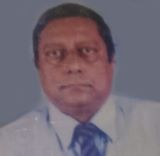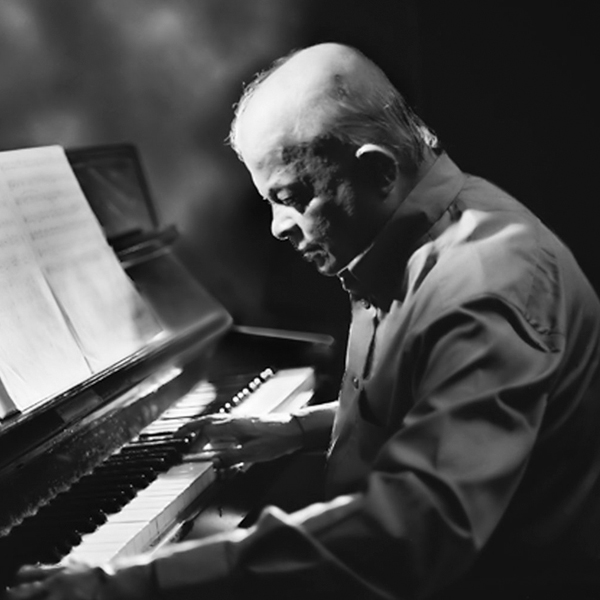Dr Premasiri Khemadasa Emperor of Sri Lankan Opera who revolutionised music to completely stop copying the Indian masterpieces – By Sunil Thenabadu
 The statement that music induces sensation is apparent. Certain melodies are embedded in our memories for ever. The power and the ability to change us and modify the world is always linked with a soundtrack of one genre or another. Music is a lustrous light that enters through the ears and routes through the body, similar to blood that streams inside its veins.
The statement that music induces sensation is apparent. Certain melodies are embedded in our memories for ever. The power and the ability to change us and modify the world is always linked with a soundtrack of one genre or another. Music is a lustrous light that enters through the ears and routes through the body, similar to blood that streams inside its veins.
When times get rough, the music carries us through the darkest of nights, like a narrow boat drifting off at sea through a cloud of indecision.
For over fifty years of composing Dr Premasiri Khemadasa fused Sri Lankan folk elements, Indian ragas, and western classical forms into glorious melodies that captured the deepest longings of the people who shaped his life.His fusion of many genres of music was unique to native Sri Lanka and the whole world too.Many foreign musicians in many parts of the world had endorsed his musical elements to be captured my counterparts in overseas countries too having never stopped creating music which was similar to a duck taking to water.
Young Premasiri Khemadasa Perera born on January 27th 1938 in the village Talpitiya in Wadduwa, was the last child in a family of thirteen siblings, Father was Simon and Mother Allen Perera had been brought up with many odds with severe financial constraints .Premasiri Khemadasa has had his education at St. John’s College Panadura and then at Sri Sumangala College Panadura. Father Simon Khemadasa had expired when he was only seven years which left mother a huge burden to bring up the family which she was able to meet with the meagre income received from a few milking cows. To consolidate the family income the eldest brother had commenced weaving mats to earn an additional income. Premasiri Khemadasa has had a passion for music having innate talent not hereditary at all. Initially he was gifted an inferior quality ‘bamboo flute’ when he was only six years old. He has had to leave school after a conflict with the Principal on not giving him a double promotion. But he was determined to pursue a career in music by learning to blow the flute to tall elevations. With this fluency he had travelled in the train from Panadura to Fort playing the flute by which he was able to fetch a very small sum towards the family overheads.
Dr Premadasa Khemadasa is the only known Sri Lankan musician who practised and crafted opera. His famous operas include ‘Manasawila’, ‘Doramandalawa’ and ‘Sondura Varnadasi’. Everything about Khemadasa is drawn in grandmaster strokes. He blended or harmonised instrumental music with human sounds.
His pioneering effort was effective in his very first Sinhala opera ‘Kalemal’, which was a significant factor in his career. Perhaps the most salient feature of Khemadasa’s music is the use of western classical music with increased use of ‘folk rhythms’. He has declared that Music doesn’t lie. ‘If there’s something to be changed in this world, then it can happen through music’. It is as if the music of Master Khemadasa was a brush dipped in the happiness you feel in your heart, to paint a picture of a more colourful world. It fills the space in your thoughts and strengthens your feelings.
Opera content began to change in the Classical period in music to unprecedented intensity. This was brought about by the social movement known as the Enlightenment. Jacopo Peri composed Dafne (1597), which many count to be the first opera. From that beginning, two types of opera began to emerge: opera seria, or stately, formal, and noble pieces to befit the royalty that attended and sponsored them, and opera buffa, or comedies. The ultimate Classical opera composer was Wolfgang Amadeus Mozart.
For Premasiri Khemadasa his large-scale operas have been some of the most successful ventures in Sri Lankan culture. He wrote groundbreaking musical scores for over 150 films, including many of Sri Lanka’s signature, internationally acclaimed classical films. He also wrote music for an award-winning BBC documentary too.
When he died in 2008, thousands of Sri Lankans from all religions, ethnic groups, and classes paid their respects. In the Agni opera, you can listen to a one-and-half-hour musical performance giving the impression of a gigantic epic theatre because of its huge sonic canvas. Each new melody, harmony and rhythmic change is monumental and there is nothing to compare with it in the contemporary musical spectacle.
He has successfully conducted his music in Beijing, Paris, Prague and Vienna. He received dozens of awards for his contribution to the music of his country. As a philanthropist and educator, Khemadasa started the Khemadasa Foundation to train young adults in music free of charge as he did not want poor children to deprive of learning. His students came from small villages all over the island. Even now it is still in existence run by his wife and daughters.
Khemadasa’s debut as a film composer came with Sirisena Wimalaweera’s ‘Roddie Kella’. With his musical score for ‘Bambaru Ewith’, he introduced a style of music unacquainted with Sri Lankan cinema until then. He then began collaborating with acclaimed director Lester James Peries handling the music for films like ‘Golu Hadawatha’ and ‘Nidhanaya’. Dr. Khemadasa’s contribution to teledramas also brought outstanding masterpieces to the public.His collaboration with director Jayantha Chandrasiri has turned out remarkable ventures whereas the themes he created for Chandrasiri’s television series ‘Dandubasnamanaya’ have shown unprecedented power of mesmerisation. Late Khemadasa was an icon like Chitragupt Shrivastava popularly known as only Chitragupt, the renowned Hindi film music director of the 1950’s and 1960’s.
There’s something universal about the creative arts that’s good for health, and mental health in particular. Visual arts, drama, literature, and music, despite their differences, all have some things in common – they make us feel, provide meaning, accelerate reflection, and bring us all together. Music connects us; one soul to another. When we move to the same rhythm, we momentarily live in harmony. In all societies, a primary function of music is collective and communal, to bring and bind people together.
Khemadasa was a vigilant inspired force swayed via humanism, which lay deep in his heart. A repertoire of scores written for teledramas including Chandrasiri’s ‘Weda hamine’, ‘Sathara denek senpathiyo’, ‘Akala sandhya’, Dharmasena Pathiraja’s ‘Gangulen egodata’, ‘Ella langa walawwa’ ‘Pura sakmana’ and Bandula Vithanage’s ‘Asalwesiyo’ bestowed the public with memorable musical experiences. Also, he has contributed to the teledrama ‘Sadisi tharanaya’ by Devinda Koongahage, which is most probably his last contribution to a teledrama.
The bottom line is that in all cultures, all over the world, music has a special place among humans, and it affects us in characteristic ways. In those times when the day seems bleak, the melody of Khemadasa guides us through the darkness to the light, which lies at the end of the tunnel. Stage plays such as ‘Angara Ganga’ and ‘Aesop’ were some plays that exhibited his exemplary unique musical talent. Dharmasena Pathiraja’s ‘Bambaru Evith’ also shows this link that expresses his insight into the capturing of life-giving touches via musical manifestation.
Music’s power is undisputable. It is used to evoke every emotion. It has been used to rally patriotism in times of war, as anthems of change during protests, as lullabies at bedtime, as remembrances at funerals, to calm us in turmoil, and as a refuge from the chaos of the world around us. It is hard to believe that another Dr Khemasiri Premadasa would ever be born in the world. May he attain Supreme Bliss of Nirvana.
Sunil Thenabadu in Brisbane
email sthenabadu@hotmail.com








